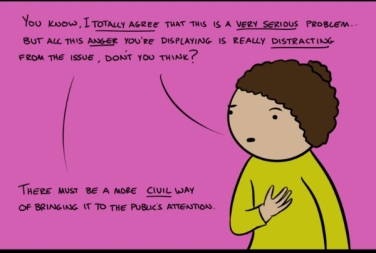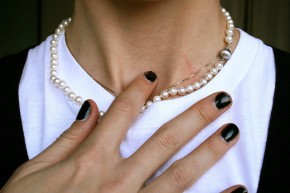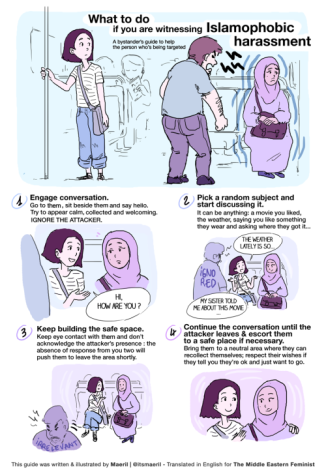Like a boil that can never be cured so long as it is covered up but must be opened with all its ugliness to the natural medicines of air and light, injustice must be exposed, with all the tension its exposure creates, to the light of human conscience and the air of national opinion before it can be cured.
-Letter from a Birmingham Jail
Dr. Martin Luther King Jr.
16 April, 1963
In King’s 1963 Letter from a Birmingham Jail he called out the what he referred to as “white moderates”. He held nothing back when he called out white moderate BS, “I have almost reached the regrettable conclusion that the Negro’s great stumbling block in his stride toward freedom is not the White Citizen’s Counciler or the Ku Klux Klanner, but the white moderate, who is more devoted to “order” than to justice.” Sound familiar?Today, in Children’s literature and other spaces, we deal with what I like to call Well Meaning White Folks (WMWF) who deal with social justice issues by gaslighting, tone policing, and outright hypocrisy. These are the WMWF who support change as long as that change in no way calls for self reflection or action.

No, We Won’t “Calm Down” by Robot Hugs.
I can always tell when I am dealing with WMWF by their rallying cry “be nice” or “choose kindness”, as if the act of calling out racism, misogyny, ableism and homophobia is the problem and not the act of racism, misogyny, ableism and homophobia. King was on to this BS when he wrote, “Actually, we who engage in nonviolent direct action are not the creators of tension. We merely bring to the surface the hidden tension that is already alive.” [emphasis added].
As a proud Latina lesbian and member of today’s Call Out Culture I gain solace by reading King’s Letter from a Birmingham Jail. Lately, some horrible truths have come out, specifically, Anne Ursu’s article highlighting the prevalence of #MeToo moments in professional #kidlit spaces. The resulting fallout and backlash has been hard to watch for many reasons including the defensive reactions of WMWF who don’t want to air out, talk about, reflect on, believe, or change the engrained male* dominated power structures.
Unchecked Entitlement, Privilege, and Power
Recently a White male author, Marc Tyler Nobleman was called out on social media for participating in an all-White, all-male panel at a Children’s literature conference in 2018. He was so hurt by the public discussion of his actions that he decided to write a blog post about it. Let me be clear, Marc Tyler Nobleman, like many WMWF, claims to be an ally. So, when he was called out, his immediate response was to pull bucket after bucket from the seemingly endless well of defensive phrases that WMWF have at their disposal. He began by defending his choice of participating in an all-male, all-White panel with the ultimate in weak-tea excuses, “I did not think to ask who else was presenting.”
He pulls suggestions right out of the Protect the White Male Status Quo! handbook, “Rather than start with public shaming or snark, instead contact the event organizer and participants directly and privately to express the concern civilly.” Let’s be clear Well Meaning White Folks are more invested in protecting their uncontested vantage point of privilege than in changing a system that keeps them there.
To be sure, the status quo in Children’s literature is that White, male, straight, and able are the norms and should be left unquestioned and unchallenged. Look at any professional Children’s literature space – from conferences to classrooms – who are the vast majority of people in those spaces? Well Meaning White Women (WMWW). And who is pretty damn quick to come to the defense of men called out in these #MeToo moments? WMWW. Perhaps White women in Children’s literature are invested in protecting the status quo because they enjoy the privilege of being adjacent to the unchecked entitlement of men.
No one is unaffected by the colonizing social structures that are in place and protected by the status quo. All of us are responsible for upholding White male dominance at one point or another in our lives. What many of us are asking for now is for WMWF to have the hard conversations, look at their own actions, and believe us when we tell you, “that is not ok and here are all the reasons why”.
Honestly, this #MeToo in Children’s lit is missing an important conversation that I suspect has been happening on a separate and parallel whisper network. I have been part of conversations about the discomfort of unchecked entitled behavior of White women, specifically towards Black male authors. I have seen White women^ (and yes, it has always been White women^) approach Black male authors and
– Stroke biceps
– Press boobs against arms and/or shoulders while taking selfies
– Touch his hair (including braids, dreads, afros, and facial hair)
– Stroke his bald head (seriously? WTF is that about?)
– Sidle up as he’s talking to a small group of people, and move a hand across his lower back/upper butt region
– Touch his butt
 All of this was done silently and without consent. (There is also some really weird lesbian fetishizing but Malinda Lo covered that over on Twitter). And, before the pearl clutching begins, I know this is NOT the same as the #MeToo incidents in Anne Ursu’s piece, or the ones in the comment section of the School Library Journal piece. The reason this is important for our professional community to think about is that Black men live with the very real memory of Emmet Till and the White woman who’s statements got him killed. They live with the fetishizing of Black bodies by White people. This is another, different, way unchecked entitlement makes us all lesser.
All of this was done silently and without consent. (There is also some really weird lesbian fetishizing but Malinda Lo covered that over on Twitter). And, before the pearl clutching begins, I know this is NOT the same as the #MeToo incidents in Anne Ursu’s piece, or the ones in the comment section of the School Library Journal piece. The reason this is important for our professional community to think about is that Black men live with the very real memory of Emmet Till and the White woman who’s statements got him killed. They live with the fetishizing of Black bodies by White people. This is another, different, way unchecked entitlement makes us all lesser.
Actions We All Need to Take
I am not going to ask you to sign a petition, or put on a pin or buy a ribbon. Instead, I am going to provide some helpful and actionable items for all of us.

First, if you think someone is on the receiving side of unwelcome attention and fetishizing you can open a safe space for them. Here is a helpful comic by Maeril. It is specific to Islamophobia but I think it works in pretty much every situation when people are behaving with unchecked entitlement.
– Make eye contact with the person BEING intruded upon
– stand next to or near the person BEING intruded upon
– Engage the person BEING intruded upon in conversation
And what should you do if you find yourself wanted to subject someone else with unasked for physical attention? You should ask for consent. This seems like a good plan for everyone in professional spaces … or any space, really. Ask before handling anyone, even if the handling is under the guise of flirting, humor, or as a result of that heady mix of alcohol and hotel keys.
And just in case you are confused, consent means saying the words that specify what you want to do and waiting until you get enthusiastic, verbal agreement. It would look something like this;
– “May I stroke your bicep?”
– “Ok if I put my arm around you and rest my hand on your ass?”
– “Can I rub your bald head?”
– “Is it ok if I press my breasts up against you?”
If you, Well Meaning White Women, feel embarrassed by asking a Black man for consent at a public book signing or other professional space thus putting your desire for physical contact with him into the of “light of human conscience and the air of national opinion” then you should not be doing it at all.
*I know not all men. And, I also know some women. Don’t start with that.
^I know not all White women. Don’t start with that, either.

There’s no clarity like your clarity. I thank you for this and will share widely.
Thanks – I was nervous about veering out of my lane.
Reblogged this on debraj11 and commented:
Worth your time to read. The new ask of publishing must be parity and integration at all levels.
As usual, Laura, you get straight to the heart of the matter. Preach on, friend!
Thank you for posting this.
Well done!
Wow. I’m embarrassed that didn’t know some of this stuff was going on right next to me. I am learning — and pledge to be more observant and take action.
“Okay if I put my arm around you and rest my hand on your ass?” is my favorite ever example of ‘If you can’t talk about it, don’t do it.” This WMWM thanks you for your incisive clarity.
Bravo. So to-the-point as it HAS to be. Hoping I’m doing a bit better than a WMWW – i try.
Whew, the directness here is refreshing. Thank you.
Damn girl, I love it!!! As a Mexicana I resonated with every word of this essay. The touching of black males by women without consent makes them seem like pieces of meat. Just as the #MeToo movement as women strive to get their whole being respected and valued not just their sexuality. These too forward, invasive actions to black men, are telling them that they are “less than” or not worthy of getting consent. By them being white they feel inherently more powerful than the POC in front of them. Sighs, anyway, thank you for lifting your voice to the chorus of strong WOC lifting their voices to power.
Mil gracias !
Clearly you aren’t in the business of kindness, or even truthfulness, if you feel that you represented Marc Tyler Nobleman’s blog post accurately. Your decision to selectively parse his comments and omit the truth of what happened amounts to Fake News. I am truly disgusted that you would stoop to this level. Call it tone policing or whatever you wish, but at least be brave enough to be honest rather than to fit the narrative you are trying to create.
Not sure how I mis-represented Marc Tyler Nobleman. Although his was not a long post I could not include all of it, and so included the link. I do qualitative research and so I used a method that is rigorous and valid. I relied on direct quotations whenever possible, I stated when I was providing interpretation. Additionally, I stated his was not a unique stance and was I was using it because his excuses and pleas for niceness highlight this kind of tone-policing and status quo protectionism that is prevalent.
I read Mr. Nobleman’s post the exact same way. Perhaps he and his fellows are unfamiliar with the way this defensiveness often manifests itself, but that doesn’t make it less cliché or pointing out the way tone policing privileges white comfort over racial justice less important. If he did not mean it to come off like white fragility grab bag, he might step back and do research. If he is an ally, he will do just that, as will his ununsually impassioned defenders. Thank you for engaging with that post despite the risk of blowback. It matters.
Anne, The reason you read things the way you do is because of the echo chamber that too many of us have created. And Laura, you say you “could not include all of it”, but you intentionally removed his qualifications and explanations to fit your narrative. I truly want to be an ally, but I rally even more strongly against misinformation. The social justice movement is actually losing allies (anecdotally, that is – no rigorous qualitative research) every time a person who wants to state their concerns is shut down, told they’re wrong, and made to feel voiceless.
I think you might want to look up the definition of “silence”. Being critical is not asking for silence. It is asking for reflection and change.
It would help me to interpret your writings here and elsewhere, Tenisha, if you would share your qualifications. Do you have a website I can read or a blog I can follow? Are you on Twitter? Or Facebook? I don’t need book articles or articles but if you’ve got those, too, please share.
“Fake News” is an interesting choice of phrase.
Thank you for this excellent and vital post.
Thank you for your excellent work.